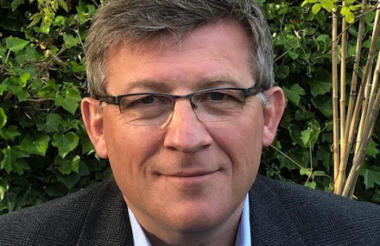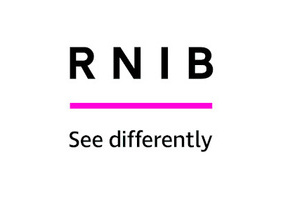The chief executive of RNIB has said the charity avoided being “adversarial” with the Charity Commission during a statutory inquiry that was underway when he joined.
Speaking at Civil Society Media’s Trustee Exchange on Wednesday, Matt Stringer said one of the areas which helped RNIB manage the inquiry “was not being confrontational or adversarial with any external body, we utterly accepted it was fair cop”.
Stringer, who joined RNIB midway through the Commission’s two-year investigation, said he spent around a fifth of his time working on the inquiry until it concluded in June 2020.
He said “the most important thing” the charity did was to accept the regulator’s findings, including that it had let down children in its care due to systemic governance failings.
The charity’s transparency and work to build relationships with stakeholders throughout the investigation was also important, he said.
‘Very difficult’ conversations
The regulator opened a statutory inquiry in March 2018 after RNIB reported serious incidents relating to safeguarding and Ofsted’s intention to cancel the registration of one of its children’s homes.
Its then-CEO Sally Harvey resigned shortly afterwards, and RNIB appointed Stringer in 2019.
Stringer said that during the hiring process it was thought the inquiry would last six months, though it ended up taking over two years.
The investigation concluded with the Charity Commission’s report in June 2020, which found misconduct and mismanagement at the charity and said that it let down children in its care due to systemic governance failings.
Stringer said: “It is important to acknowledge that things did go very, very badly wrong at the RNIB, we accept all the Commission’s findings in full. We did let down children and families and blind and partially sighted people, and we are truly sorry.”
He added: “Some of the hardest conversations I’ve had in my time at the organisation were talking to families and children at the school” and though they were “very difficult” Stringer said “I think they were very beneficial for everybody”.
Stringer said as chief executive the work around a statutory inquiry is “something you can't delegate”.
“For us, it was pretty obvious there was a problem,” he said. “It was probably better for us to face into it than be in denial, frankly. And I think that served us well because we weren’t focused on any sort of confrontation or being adversarial.”
‘Building personal relationships’
Stringer said it was difficult not to be able to share details outside of a select few members of staff, and that a lot of change tends to happen around events such as an inquiry – for example they now have a completely new board of trustees.
He said he also built relationships with the regulator, and even spent one Christmas Eve speaking to an investigator.
“Building personal relationships was one of the most important things I spent time doing,” he said.
Stringer said he tended to spend around 20% of his time working on the inquiry, and often a lot more than that at critical times.
Jessica Holifield, RNIB’s director of legal and governance, was hired to help manage the inquiry.
She said at the event: “It’s a huge amount of work, you need a dedicated team, this is not something that can be done as part of business as usual. Otherwise, essentially, you will get staff members burning out.”
Independent reviews also took place as part of the inquiry, and Holifield said charities need to respond to independent reviews when they get draft reports through “because that is your opportunity to influence what is going to be in that final Charity Commission report”.
‘We made sure to be on the front foot’
There were also difficulties with being in the public eye, national press coverage, and trying to fundraise and do advocacy work, said Stringer.
“The lesson from all of this is certainly at the start, don’t expect balanced reporting. It’s very difficult to control,” he said. However, he said charities have more control of the communication as it goes on.
“When the report was released in 2020, we made sure to be on the front foot, but the most important thing we did was put out a press release which accepted the Commission’s findings and apologised,” said Stringer.
“What we did do was publish an update report, which explained how we were learning from what's happened and what changed.
“I think it was transparency and commitment to the process which ultimately went down well.”
Stringer said the charity’s transparency aided its relationships with people in the sector, government ministers, celebrities, supporters and ambassadors.
“That openness and communication towards groups made them feel personally engaged and gave them confidence that we were dealing with appropriately,” he said.
Related Articles












